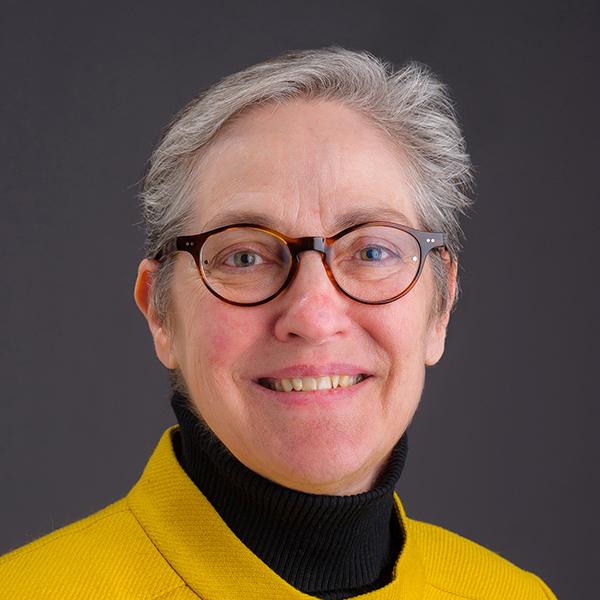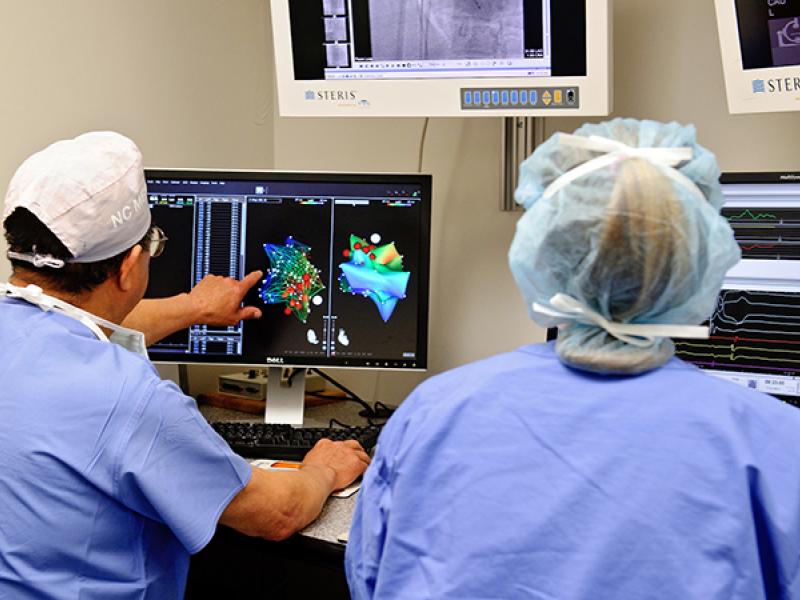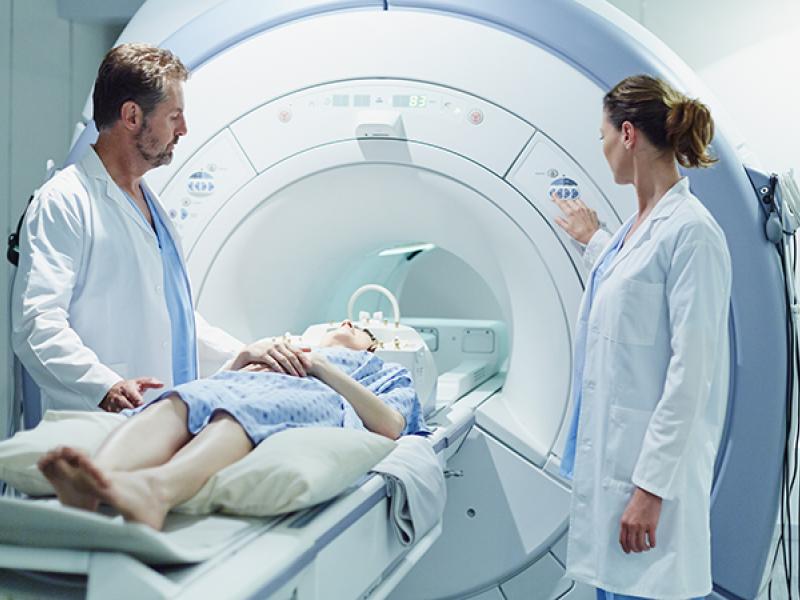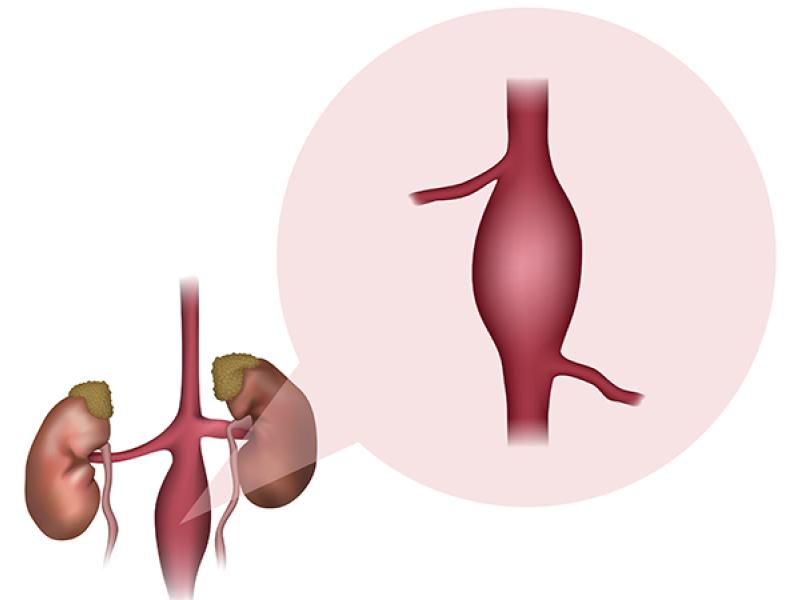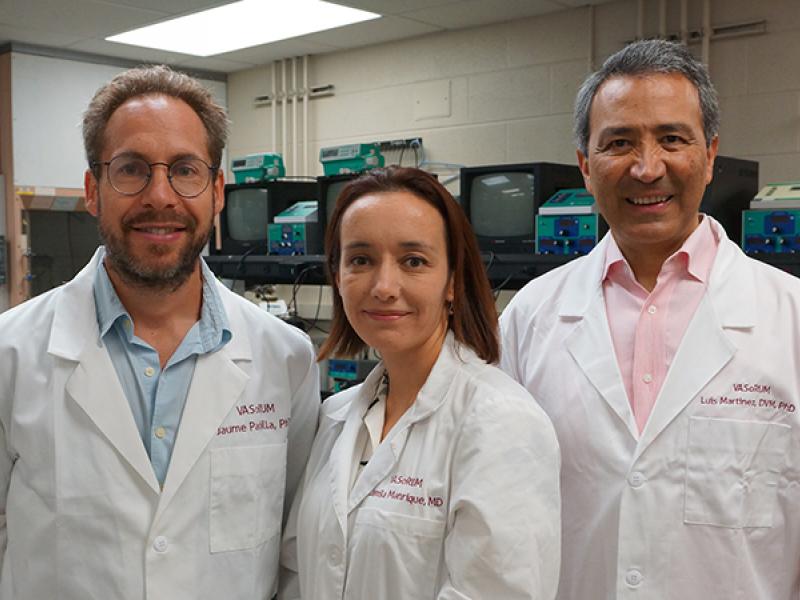The mission of the Cardiovascular Disease Fellowship program in the Division of Cardiovascular Medicine at the University of Missouri School of Medicine is to provide advanced education for the physician to acquire competency in this subspecialty with sufficient expertise to act as an independent consultant. Our mission aligns with the MU’s School of Medicine to educate physicians who deliver effective patient-centered care for the people of Missouri and beyond.
Goals and objectives
The Division of Cardiovascular Medicine offers a three-year fellowship training program in Cardiovascular Disease. The fellowship program adheres to the minimum training requirements set forth by the ACGME. At completion of the fellowship, fellows will be qualified to take the ABIM board examination in Cardiovascular Disease. In addition, after completion of the fellowship training, the physician will have fulfilled COCATS 4 level I or level II training in all the cardiovascular skills and procedures required to achieve independence.
The goal of the fellowship is to produce physicians who maintain their intellectual curiosity, their concern for patients, and the attention to detail expected by Internal Medicine training programs. Every trainee will acquire a basic core of knowledge of cardiovascular anatomy and physiology to make an accurate diagnosis and establish an effective, evidence-based treatment plan in patients with a wide variety of acute and chronic cardiovascular disorders. Furthermore, every fellow will have opportunities to make new discoveries and observations and to disseminate this knowledge in oral and written formats.
The fellowship program provides a learning environment that fosters excellence, compassion, professionalism, high ethical standards, effective communication, collaboration, and scholarship. The fellows are expected to be engaged in all educational experiences, whether in direct patient care, quality improvement projects, research endeavors, or conferences.
Our faculty are expected to be models of all the desired attributes of patient-centered care, including respect for individuals, honesty, integrity, and effective communication and collaboration with patients and other members of the health care team. Faculty are also expected to be models of critical thinking and problem solving.
Fellowship structure
Every year of fellowship training is divided into 13 rotations of four weeks duration. The first-year cardiovascular disease fellow typically spends six to seven rotations on inpatient services, including the Coronary Intensive Care Unit, the inpatient Consultative Service, and one to two rotations of night float to provide coverage for both types of inpatient service. The remainder of the rotations are split between the noninvasive laboratory and invasive laboratory. Weekly half-day outpatient continuity clinics are part of the first-year experience.
The second and third years are spent tailoring the type of training desired by the fellow (non-invasive, invasive, electives and/or research). Weekly half-day outpatient clinics continue throughout the second and third-year experience.
At the end of three years, the fellow will complete eight rotations of inpatient services (CICU or consultative service), approximately two and a half rotations as night float, a minimum of four rotations in the invasive laboratory, a minimum of eight rotations in noninvasive services (including four rotations in echocardiography, two rotations in nuclear cardiology, and two rotations focused on other modalities, such as electrocardiography, stress testing/cardiac rehabilitation, and other imaging [CT/MRI/PET]), a vascular rotation, and a pediatric cardiology rotation. Elective opportunities include additional rotations in the invasive laboratory, echocardiography, nuclear cardiology, or CT/MRI. Additional electives include advanced heart failure and adult congenital heart disease at Washington University in St. Louis by pre-arrangement.
Research opportunities are available to all fellows. Any fellow electing a research rotation must have a faculty research mentor who will meet with the fellow to develop a project and guide progress towards goals. Fellows are provided a list of ongoing clinical and basic science projects performed by members of the Division of Cardiovascular Medicine or other University of Missouri faculty members. Publication in peer reviewed journals is also expected. Fellows are expected to present their research at a morning conference during the academic year.


